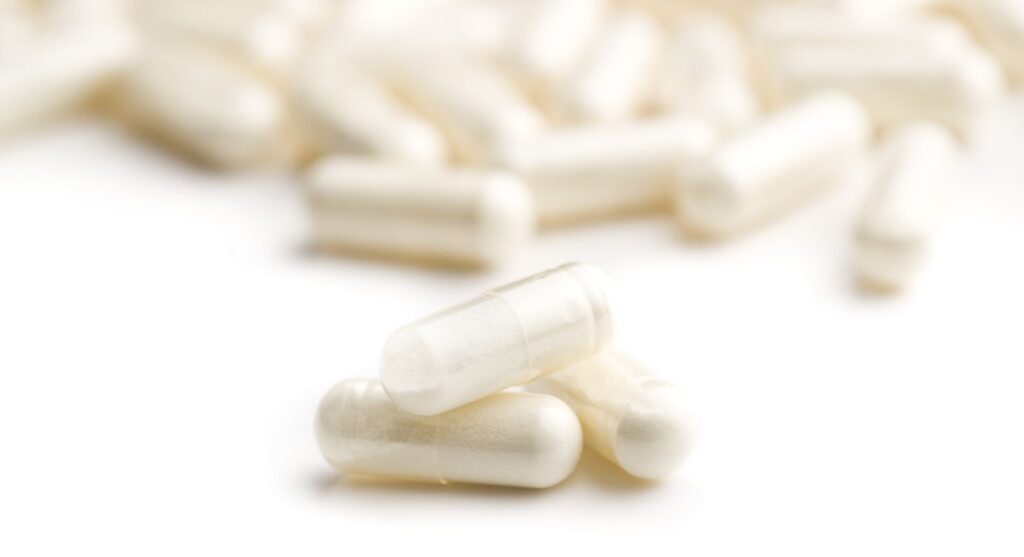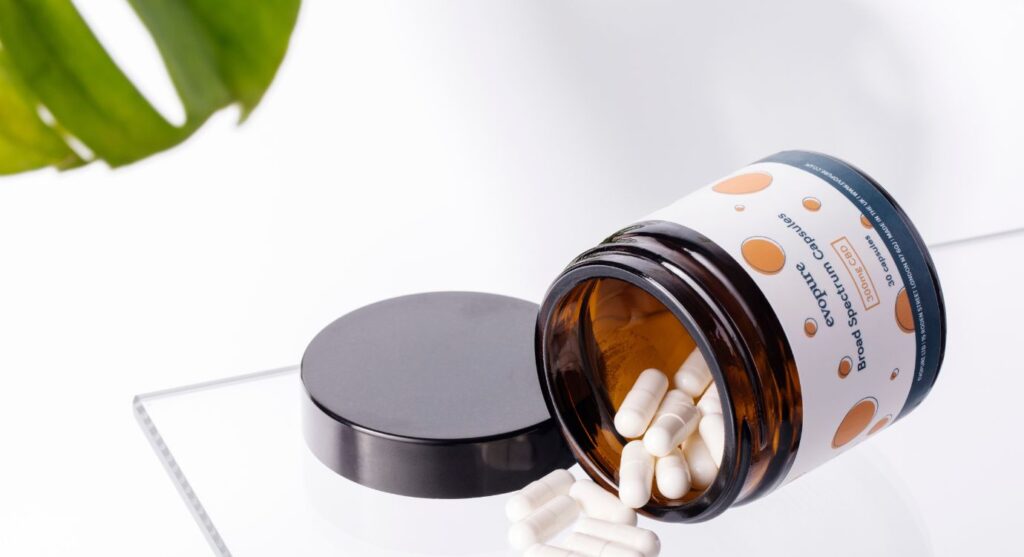Free delivery on all orders over £45
Free delivery on all orders over £45

Medically reviewed by
The most common way to consume CBD is by ingesting CBD oil (often referred to as tincture) or taking capsules orally.
But, in the debate over CBD oil vs capsules, which, if any, is superior?
We’ll let you in on a little secret: there’s a key difference in the bioavailability of the two options (more on this later, for those scratching their heads).
Put simply: not all CBD is made equally, and ingestion methods do, to an extent, matter.
One thing we will say is that there’s no replacement for quality CBD. If the actual product isn’t up to scratch, it’s not going to have the required effect – regardless of the ingestion method.
But if you’ve found yourself caught short at a till, overwhelmed with conflicting information or simply unsure where even to begin, now is the time to take a deep breath and relax.
In this comprehensive guide, we weigh up the differences between CBD oil and capsules. You will discover:
Let’s dive straight in!
Let’s start from the beginning.
CBD – or cannabidiol – is a non-psychoactive compound derived from the cannabis plant.
So how does it go from plant to bottled health supplement?
All CBD oil is created via extraction.
While there are many different extraction methods, at Evopure, all of our CBD is made using CO2 extraction. This means that our oil retains as much of the original plant as possible in its most natural form, all while maintaining the highest possible safety profile.
Read more: How is CBD extracted?
Using CBD in an oil form is the most popular and effective way to deliver cannabinoids to your body.
The most common method of ingesting CBD oil is sublingual. This involves placing a few drops of CBD oil under your tongue and holding it there for about 90 seconds while the liquid is absorbed.
However, there are other methods of CBD oil, including cooking with CBD oil, baking CBD brownies or CBD cakes, drinking CBD coffee or CBD tea or mixing CBD with skincare products.

CBD capsules are simply another way of ingesting CBD, allowing you to consume all the goodness in capsule form.
It’s not all that complicated: CBD capsules essentially look (and act) like any other supplement, vitamin or wellness pill.
The key difference between CBD oil vs capsule format is that with the latter, the liquid is divided into equal doses and contained within a gel casing.

CBD oil and capsules usually contain the same ingredients and therefore interact with the endocannabinoid system in the same way.
The main difference with ingesting CBD oil is that magic word we mentioned earlier: oil has higher bioavailability than capsules.
Ok – spill. What exactly is bioavailability?
Read more: CBD bioavailability
We’ve covered this topic at length in the article above but can also treat you to an official definition.
Drum roll, please…
Bioavailability is a term that refers not only to CBD but a range of compounds. According to Science Direct:
“Bioavailability is the potential for uptake of a substance by a living organism. It is usually expressed as the fraction that can be taken up by the organism in relation to the total amount of the substance available.”
Okay, the science lesson is over. Let’s look at what this means for CBD.
Because of the method by which CBD oil is ingested – via drops under the tongue (sublingually), the CBD oil immediately enters the bloodstream, bypassing the stomach and liver.
This means the cannabinoids are delivered straight into the open arms (metaphorically!) of your ECS receptors – without being processed via the digestive system, leading to a higher percentage of cannabinoids absorbed into the bloodstream.
Thus, sublingual ingestion can be incredibly effective at delivering the myriad of CBD benefits you always hear about.
On the other hand, CBD capsules are taken orally and generally take longer to have a noticeable effect because the gel coating on CBD capsules hinders bioavailability. The compound has to be broken down in the stomach and bypass the liver before finally entering the bloodstream.
10% off on your first order
Complete this one-minute quiz and find the right products for you.
We’ve said it before, and we’ll say it again, when it comes to CBD oil vs capsules – there are different strokes for different folks.
Everyone is different, and which ingestion method you choose might depend on why you take CBD.
But, if it has to be a competition, let us say this:
Higher bioavailability
Effects felt in ±15 minutes
Ability to control dosage
Versatile uses and consumption methods
Lower bioavailability
Effects felt after 45 minutes to 2 hours
Consistent CBD dosages
Easily integrated into a wellness routine
Short answer: yes!
However, we would always sit on the side of caution.
If you’re new to taking CBD, we recommend taking different products in isolation before combining them. This should be taken as basic advice when considering taking any supplement – not just CBD.
It’s also essential to ensure that you’re aware of your daily dosage. When mixing different products, you easily lose track of how many milligrams you’ve consumed.
The most recent guidance in the UK (released by the Food Standards Agency) recommends that ‘as a precaution’, healthy adults shouldn’t take more than 70mg daily unless a doctor agrees to more.
This equates to about 28 drops of 5% CBD.
So which comes out on top? When weighing up CBD oil versus capsules – just like butter versus margarine, white bread versus brown, fried versus grilled… it’s all about personal preference.
Take our products: both our Evopure CBD capsules and our Evopure CBD oils are broad spectrum, both are made from organically grown hemp, and both are high-quality products (cheeky brag, sorry not sorry!)
If, for you, it’s all about the bioavailability of a product, we’d advise trying CBD oil – also great if you’re not so much of a fan of swallowing capsules.
If you’d rather not mess about controlling your dosage and are looking to integrate CBD into a daily wellness routine, capsules might be your best option. This is also the case if you’re a bit fussy about taste!
CBD oil and CBD capsules are both great ways of consuming CBD. If you’re looking to choose an option with the highest bioavailability, CBD oil is your best option. For those who don’t like the taste of CBD oil – CBD capsules are your best bet.
Yes, CBD oil works faster than capsules. Due to its higher bioavailability, CBD oil reaches your bloodstream more quickly. It takes around 15 minutes for oil (taken sublingually) to take effect. In contrast, capsules take anywhere between 45 minutes and 2 hours to work.
Sign up for the Evopure newsletter:
This product is not for use by or sale to persons under the age of 18. It should not be used if you are pregnant or nursing. Consult with a physician before use if you have a serious medical condition or use prescription medications. A Doctor’s advice should be sought before using this and any supplemental dietary product. This product is not intended to diagnose, treat, cure or prevent any disease.
© Evopure Ltd. All rights reserved Terms & Conditions Cookie Policy Sitemap